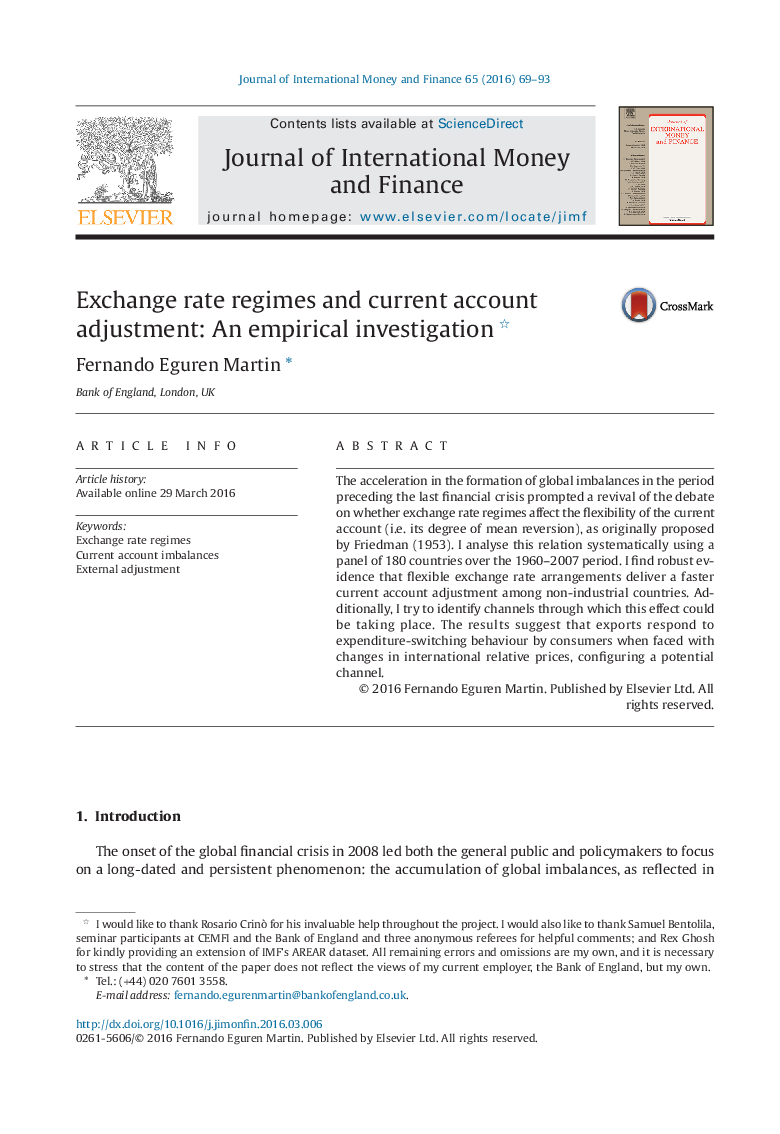| Article ID | Journal | Published Year | Pages | File Type |
|---|---|---|---|---|
| 964616 | Journal of International Money and Finance | 2016 | 25 Pages |
Abstract
The acceleration in the formation of global imbalances in the period preceding the last financial crisis prompted a revival of the debate on whether exchange rate regimes affect the flexibility of the current account (i.e. its degree of mean reversion), as originally proposed by Friedman (1953). I analyse this relation systematically using a panel of 180 countries over the 1960-2007 period. I find robust evidence that flexible exchange rate arrangements deliver a faster current account adjustment among non-industrial countries. Additionally, I try to identify channels through which this effect could be taking place. The results suggest that exports respond to expenditure-switching behaviour by consumers when faced with changes in international relative prices, configuring a potential channel.
Related Topics
Social Sciences and Humanities
Economics, Econometrics and Finance
Economics and Econometrics
Authors
Fernando Eguren Martin,
